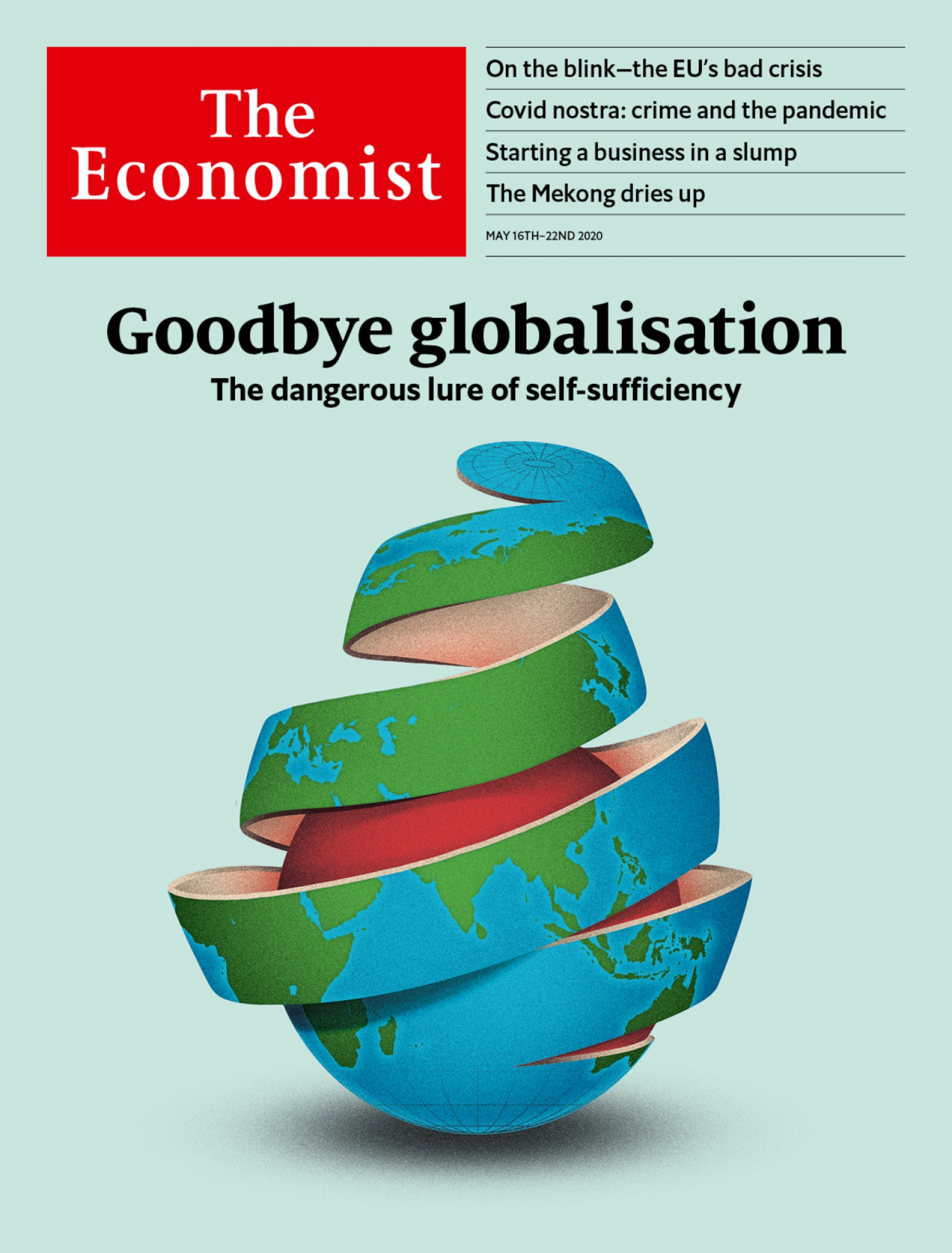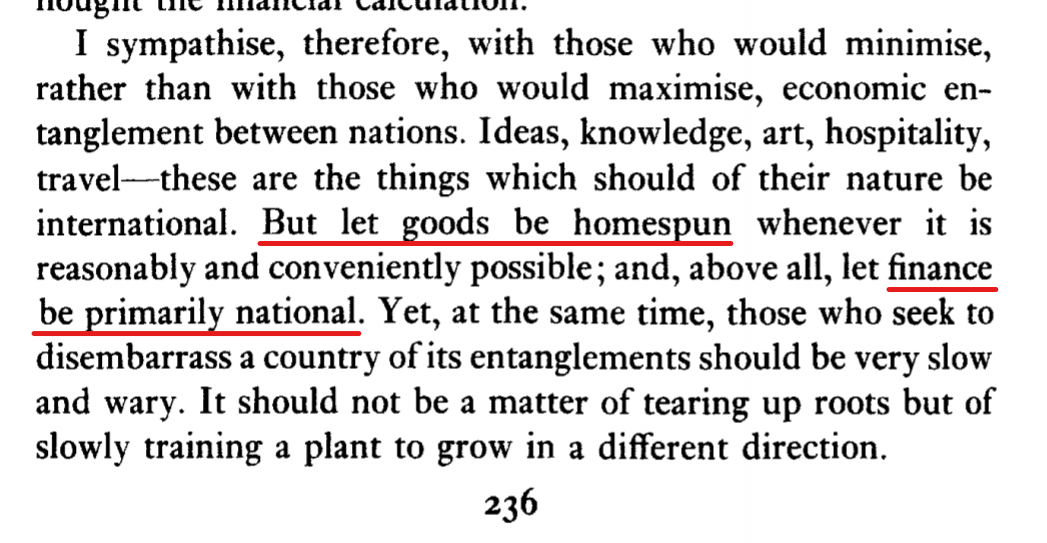The latest edition of The Economist has this cover, worrying about the rise in the idea of national self-sufficiency.
Obviously, The Economist whose purpose is to promote the propaganda of free trade doesn’t like this as any country achieving self-sufficiency would mean a reduction of market share of large corporations whose interests the magazine has spoken since 1843, the year it was founded.
John Maynard Keynes wondered about national-self sufficiency too. In an article titled National Self-Sufficiency in the year 1933, which he argued:
Of course self-sufficiency is one thing, but there’s also the idea of planned trade. These two concepts are related but are potentially different.
One of the promoters of planned trade was Nicholas Kaldor. In The Role Of Increasing Returns, Technical Progress And Cumulative Causation In The Theory Of International Trade And Economic Growth, Economie Appliquée, 34(4): 593–617, 1981, he motivates the reasons for a planned trade:
At the moment the world suffers from an insufficiency of demand for industrial products which most industrial countries however are not in a position to remedy, because of the need to avoid deficits in their balance of payments. It does not follow therefore that free trade leads to the maximum development of trade: if it involves chronic imbalances it might lead to a situation in which the world economy is in a state of continued recession, which cannot be effectively counterbalanced by national policies of economic management. Most governments and economists are in constant fear lest the state of recession will lead to the haphazard introduction of protective measures to domestic industries, which on balance will cause a further shrinkage of world demand. This may well happen in the absence of a coordinated policy, but my own prescription would not be that we must stick to free trade (whatever the cost), but to introduce a system of planned trade between the industrially developing countries, so as to remove the balance of payment constraint on their internal expansion.11
Contrary to the actual policies adopted—which put trade restrictions mostly on imports from low wage developing countries—I would allow such imports freely since these countries have an unlimited appetite for manufactured imports of capital goods, which is only restrained by their ability to pay for them. Contrary to the general view, therefore, it is not the imports coming from the developing countries, but the import penetration of goods produced in developed countries which threatens major industries of other developed countries (such as the motor car industry in Britain or the television industry in the U.S.) and which requires some system of regulation of trade if we wish to remove existing impediments for the expansion of production and employment in the industrial countries of the world.12
11 The French Government in the year preceding the legislative election, under the leadership of M. Barre, advocated something similar with their slogan “Croissance ordonnée des échanges”. It is possible however that it was a temporary slogan for the sake of electoral popularity since not much was heard about these policies after the last French elections.
12 It also requires the recycling of OPEC surpluses—a function which has been performed up to now, not by official institutions such as the IMF, but mainly American private banks, operating through the Euro-dollar market. While I have no time to develop this theme on the present occasion, I think I ought to mention that I would favour as an instrument of such planning the introduction of some licensing system for imports of manufactures which is directly linked to exports, so that imports and exports are kept in some agreed balance.
Basically in the regime of free trade, the market mechanism does not bring balance-of-payments imbalances in balance. The price mechanism to keep global imbalances in check simply doesn’t work. Instead it works by putting a deflationary bias on the whole world.
Hence there is a need for using official mechanisms to keep imbalances in check without output suffering.

